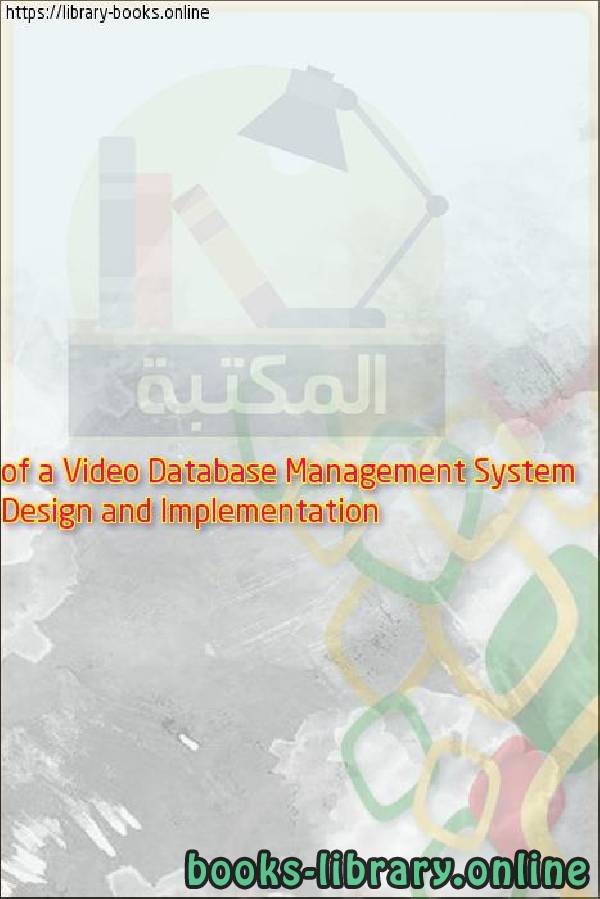📘 قراءة كتاب Design and Implementation of a Video Database Management System أونلاين


فيديوهات التنفيذ
ith the advances in information technology, the amount of multimedia data captured, produced,
and stored is increasing rapidly. As a consequence, multimedia content is widely used for many applications in
today’s world, and hence, a need for organizing this data, and accessing it from repositories with vast amount of
information has been a driving stimulus both commercially and academically. In compliance with this inevitable
trend, first image and especially later video database management systems have attracted a great deal of attention,
since traditional database systems are designed to deal with alphanumeric information only, thereby not being
suitable for multimedia data.
In this paper, a prototype video database management system, which we call
BilVideo
,i
s
introduced. The
system architecture of
BilVideo
is original in that it provides full support for spatio-temporal queries that contain
any combination of spatial, temporal, object-appearance, external-predicate, trajectory-projection, and similarity-
based object-trajectory conditions by a rule-based system built on a knowledge-base, while utilizing an object-
relational database to respond to semantic (keyword, event/activity, and category-based), color, shape, and texture
queries. The parts of
BilVideo
(
F
act-Extractor
,
V
ideo-Annotator
,
its Web-based visual query interface, and its
SQL-like textual query language) are presented, as well. Moreover, our query processing strategy is also briefly
e
xplained.
K
eywords:
video databases, multimedia databases, information systems, content-based retrieval, spatio-
temporal relations, spatio-temporal query processing, video query languages
1. Introduction
There is an increasing demand toward multimedia technology in recent years. As multimedia
content (e.g. image, video, and audio) is widely used for many applications in today’s world,
a
need for organizing this data, and accessing it from repositories with vast amount of
information has been a driving stimulus both commercially and academically. In compliance
with this inevitable trend, first image and especially later video database management
systems have attracted a great deal of attention, since traditional database systems are not
suitable to be used for multimedia data.
∗
This work is partially supported by the Scientific and Research Council of Turkey (T
̈
UB
̇
ITAK) under Project
Code 199E025, Turkish State Planning Organization (DPT) under Grant No. 2004K120720, and European Union
under Grant No. FP6-507752 (MUSCLE Network of Excellence Project).
BilVideo: Design and Implementation of a Video Database Management System
حجم الكتاب عند التحميل : 625.2 كيلوبايت .
نوع الكتاب : pdf.
عداد القراءة:
اذا اعجبك الكتاب فضلاً اضغط على أعجبني و يمكنك تحميله من هنا:

شكرًا لمساهمتكم
شكراً لمساهمتكم معنا في الإرتقاء بمستوى المكتبة ، يمكنكم االتبليغ عن اخطاء او سوء اختيار للكتب وتصنيفها ومحتواها ، أو كتاب يُمنع نشره ، او محمي بحقوق طبع ونشر ، فضلاً قم بالتبليغ عن الكتاب المُخالف:
 قبل تحميل الكتاب ..
قبل تحميل الكتاب ..
يجب ان يتوفر لديكم برنامج تشغيل وقراءة ملفات pdf
يمكن تحميلة من هنا 'http://get.adobe.com/reader/'


 منصّة المكتبة
منصّة المكتبة